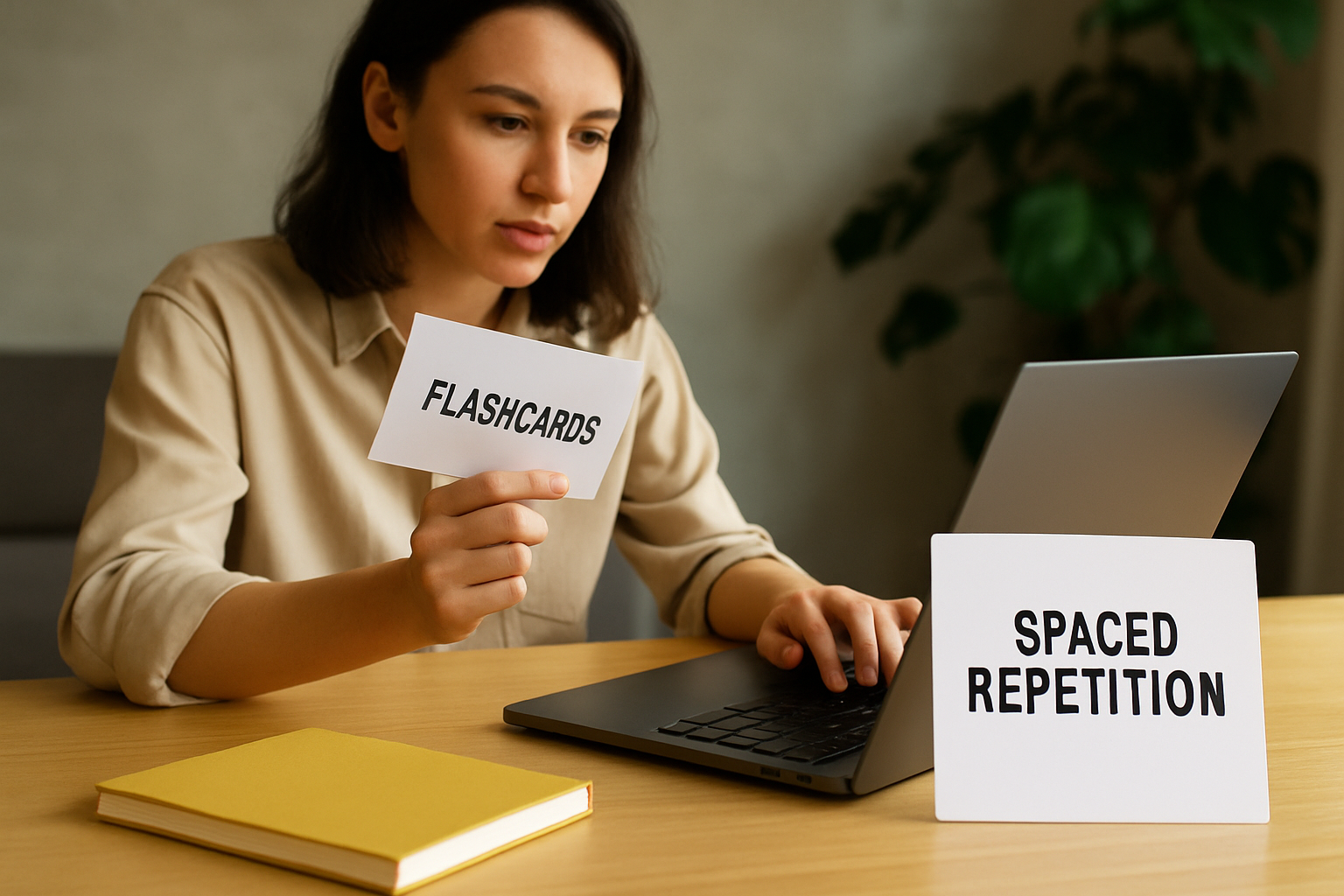
Flashcards vs spaced repetition in tech learning
In the fast-evolving world of technology, learning is not just about consuming information—it’s about retaining and applying knowledge effectively. Whether you are mastering a new programming language, memorizing command-line instructions, or keeping up with the latest frameworks, the challenge remains: how do you make information stick so it becomes second nature?
Among the arsenal of learning tools, flashcards and spaced repetition systems (SRS) are two of the most popular techniques, particularly for those in tech roles. Both promise to combat the infamous “forgetting curve,” but they approach learning in distinct ways. Understanding their differences and strengths can be transformative, especially for women in tech and neurodivergent learners who value adaptive, evidence-based strategies.
The Essence of Flashcards
Traditional flashcards are deceptively simple: each card presents a prompt (a question, term, or code snippet) on one side and the answer on the other. This technique, rooted in active recall, encourages you to retrieve information from memory rather than passively rereading notes.
For example, a flashcard might ask:
Q: What does the
ls -lacommand do in Unix?A: Lists all files and directories in the current directory with detailed information, including hidden files.
By repeatedly testing yourself on such cards, you reinforce neural pathways, making recall faster and more accurate. This approach is particularly effective in tech learning, where concise definitions and command syntax are foundational.
Strengths of Flashcards in Tech Learning
- Focused Practice: Flashcards allow you to isolate discrete facts, such as syntax rules or API endpoints. This is invaluable when you are learning languages like Python, JavaScript, or Bash, where precision is key.
- Customizability: You can easily create decks tailored to your current learning objectives—be it regular expressions, Docker commands, or data structure definitions.
- Portability and Flexibility: Physical or digital, flashcards can be reviewed during short breaks or commutes, fitting seamlessly into busy schedules.
However, traditional flashcards have their limitations. They often lack a built-in mechanism to optimize review intervals, which is where spaced repetition steps in.
Spaced Repetition: Science-Backed Retention
Spaced repetition algorithms supercharge the flashcard method by timing reviews to exploit the way our brains forget—and remember—information. The core idea is deceptively elegant: review information right before you’re about to forget it, thus strengthening memory retention over the long term.
Apps like Anki, SuperMemo, and RemNote have brought SRS into the digital age, employing complex algorithms to track your performance and schedule optimal review sessions. Every time you answer a card, the system adjusts the next review date based on your confidence and accuracy.
“Spaced repetition is like having a personal trainer for your brain, always challenging you at the right intensity—never too easy, never too hard.”
Why Spaced Repetition Excels in Tech Education
- Efficient Long-Term Retention: Tech learning involves vast amounts of syntax, definitions, and best practices. Spaced repetition ensures that knowledge is consistently reinforced without unnecessary repetition.
- Adaptive Learning: SRS platforms adjust to your unique strengths and weaknesses. If you struggle with Git commands but breeze through SQL queries, your review schedule adapts accordingly.
- Scalability: As your knowledge base grows, SRS manages hundreds or thousands of cards without overwhelming you, reducing anxiety and cognitive overload.
While spaced repetition is powerful, it requires a commitment to regular use. Skipping sessions can lead to review backlogs, which may become overwhelming. For neurodivergent learners, this structure can be both a blessing—offering predictable, bite-sized tasks—and a potential source of stress if not managed with self-compassion.
Choosing the Right Tool for Memorizing IT Content
Memorizing commands, syntax, and definitions is rarely about rote memorization alone. The best learning happens when tools are tailored to individual needs, contexts, and neurotypes.
When to Use Classic Flashcards
- Short-Term Goals: Preparing for a coding interview or a certification exam? Flashcards are ideal for cramming specific topics in a short timeframe.
- Collaborative Study: In group learning environments, flashcards can be exchanged, discussed, and modified in real-time, fostering peer interaction.
- Creative Engagement: Physically writing cards or designing digital decks can enhance engagement, especially for visual and kinesthetic learners.
When to Embrace Spaced Repetition
- Long-Term Mastery: If you aim to truly internalize a programming language or system administration commands, SRS helps embed this knowledge for the long haul.
- Managing Complex Knowledge: As you accumulate diverse topics—from networking protocols to machine learning libraries—spaced repetition helps you retain and connect them without constant manual oversight.
- Supporting Neurodivergent Learning Styles: SRS platforms can provide structure, predictability, and feedback loops that benefit learners with ADHD, dyslexia, or autism.
For women in tech, who often juggle multiple projects and learning paths, spaced repetition’s ability to efficiently maintain a wide breadth of knowledge can be especially empowering.
Integrating Flashcards and Spaced Repetition in Practice
Rather than viewing flashcards and spaced repetition as mutually exclusive, consider them complementary. Start with simple flashcards to draft foundational concepts, then migrate these into an SRS app for long-term retention. Many tools, like Anki, allow you to create new cards on the fly, blending the creative process of flashcard creation with the scientific rigor of spaced repetition scheduling.
Tips for Effective Tech Learning with Flashcards and SRS
- Keep Cards Atomic: Each card should focus on one fact or concept. Overloading cards with too much information dilutes their effectiveness.
- Contextualize Examples: Instead of abstract definitions, use real-world code snippets or scenarios. For instance, rather than “What is a lambda function?”, ask “How would you use a lambda to sort a list of dictionaries by a key in Python?”
- Regular Review Matters: Spaced repetition rewards consistency. Set aside a few minutes daily, rather than cramming irregularly.
- Embrace Mistakes: Every forgotten card is an opportunity to reinforce learning. Don’t let perfectionism undermine your progress.
“Technology learning is a marathon, not a sprint. The right tools, used with care and intention, can make the journey not only more effective but more joyful.”
Supporting Neurodivergent and Inclusive Learning
Neurodivergent learners often experience traditional educational tools as ill-fitting or even alienating. The modular, customizable nature of flashcards and SRS systems can be remarkably accommodating. For example, learners with ADHD may appreciate the quick wins of short review sessions, while those with dyslexia can benefit from cards that include visual mnemonics or color-coded syntax.
Moreover, many SRS platforms offer features like audio prompts, image support, and flexible review modes, making them accessible to a wide spectrum of learning styles and needs. This adaptability is crucial in tech education, where diversity of thought and experience drives innovation.
Cultivating Confidence and Belonging
For women and underrepresented groups in tech, mastering foundational knowledge with these tools can be a source of confidence. When the basics are second nature, it becomes easier to speak up in meetings, contribute code, and pursue leadership roles. The act of consistently reviewing and mastering key concepts fosters not only technical prowess but a sense of belonging in the tech community.
“Every command mastered, every definition recalled, is a step toward greater agency in the world of technology.”
Looking Ahead: The Future of Tech Learning
As artificial intelligence and machine learning continue to reshape education, the intersection of flashcards and spaced repetition with adaptive learning platforms will only deepen. Soon, personalized learning paths powered by AI will anticipate your forgetting curve, curate resources, and even generate new cards based on your coding activity or errors.
But at the heart of effective tech learning remains the same human truth: we remember best what we encounter, reflect on, and revisit. Whether you’re a seasoned engineer, a coding bootcamp student, or an aspiring technologist navigating a neurodivergent mind, the humble flashcard and the sophisticated SRS are quiet allies on your journey of growth.
Technology is a landscape of constant change, but with thoughtful, evidence-based tools, your knowledge can become a steady beacon—guiding you, one review at a time.


